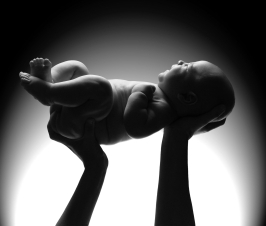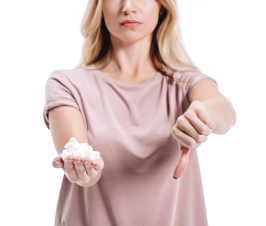Unless you frequent online chat groups or are considering competing in bodybuilding competitions, testosterone levels are likely something you don’t think a lot about. When you read online about hormonal balance, you may come across some articles about the decline of testosterone as men age, but for female hormone health you rarely see anyone talking about testosterone. Though imbalances in hormones like cortisol are blamed for everything from afternoon fatigue to eczema, each of the body’s hormones has its own critical roles in maintaining overall balance. Testosterone is no exception – it is an extremely important hormone – but it’s often overlooked.
Many of my patients are surprised to learn some of the varied roles that testosterone plays in the body. Either excess or deficiency of this hormone can cause some pretty uncomfortable symptoms. Restoring testosterone levels to normal in men and women improves moods, libido, reduces body fat and improves cognition1 – to name a few.
What is testosterone?
Testosterone is an androgenic sex hormone produced by the testicles in men and the ovaries in women. It is responsible for controlling the development of male sexual and reproductive functions, but also plays a role in the development of muscle mass, maintenance of bone density, hair growth, emotional health and red blood cell production1.
While testosterone is classically thought of as a ‘male hormone,’ women require testosterone for normal sexual and reproductive function, hair growth and the other effects, and are much more sensitive to changing levels of testosterone.
When do levels start to change?
Naturally, testosterone levels decline with age for both men and women2. Too much, or too little, testosterone can be cause for concern.
For men: Though most literature suggests that men over the age of 30 start to see declining levels, clinically I see many men in their 20s complaining of symptoms of low-T. Research has shown that testosterone levels have declined across the male population over the past two decades by about 20% (in every age category)2.
For women: Naturally, women’s testosterone levels also fall with age, with symptoms often surfacing during the peri-menopausal years. For some women, high testosterone levels are present since puberty or can develop during her reproductive years.
Many researchers blame the prevalence of endocrine disrupting chemicals for this incredible decline while others suggest it’s our obsession for lowering cholesterol, the natural precursor to all steroid hormones, including testosterone1. Traumatic brain injuries, like concussions, can lower testosterone levels over time; and obesity can lower testosterone levels because aromatase, an enzyme present in fat tissue, converts it into estrogen1. One known reason for the natural decline in testosterone as we age is because SHBG increases, a protein that binds to (and renders ineffective) hormones in the blood stream.
What does testosterone imbalance look like?
For both men and women, low testosterone levels can result in symptoms such as1:
- reduced sexual desire (low libido)
- for men, fewer spontaneous erections (ie. morning erections) or erectile dysfunction
- infertility
- changes in sleep patterns
- low self-confidence
- lack of drive/motivation
- decrease in muscle mass
- increase in body fat
- reduction in bone density
- aggression and depression
- low energy
Signs and symptoms of testosterone excess are seen in some cases, and can present as:
- loss of scalp hair
- acne
- for women, irregular or absent menses (possibly PCOS, polycystic ovarian syndrome)
- for women, growth of extra hair on the face, chin, or chest
- aggression
What can I do about it?
If you suspect you have a testosterone imbalance, get your levels tested. Your Naturopathic Doctor is well trained in testing for this hormone appropriately, either in serum (blood) or saliva. Remember that the measurement of “free testosterone” in the blood is the number you want to watch – it is the estimation of testosterone activity in the body.
Testosterone imbalance can be treated very effectively with naturopathic medicine. There are a few simple things you can start doing on your own that will help:
- Sleep well: sleep increases the release of growth hormone and testosterone3, and also allows time for repair of the adrenal glands, which produce the precursor hormone to testosterone (DHEA).
- Stop smoking: studies have shown that smoking cigarettes decreases testosterone production4.
- Lose weight: if you need to, shed those few extra pounds. This results in an immediate rebalancing of the testosterone levels in both men and women, by reducing aromatase activity.
- Exercise: exercise has many effects when it comes to testosterone. Studies have shown that intensely vigorous cardio can decrease T levels5 (especially in previously sedentary individuals). Research also shows that resistance (strength) training increases testosterone levels, as does HIIT6 (high-intensity interval training).
- Chill out: pushing the stress hormone system decreases the availability of precursor hormones for testosterone production. Basically, when the body is focused on producing stress hormones it does so at the expense of manufacturing DHEA, which is a direct precursor to testosterone. This causes imbalance, commonly lowering testosterone levels. Anything that you can do to reduce stress levels (nature hikes, acupuncture, meditation or yoga) will help with testosterone balance.
- Eat a clean, whole foods diet: especially focusing on your fat intake. Cholesterol is the precursor to testosterone (and all your sex hormones), you can’t manufacture T without eating fat. Men on low fat diets have lower testosterone levels7, and increasing cholesterol intake has been shown in research to help restore testosterone production in aging men.
- Try these nutrients: zinc and vitamin D are two very important nutrients for testosterone production. Deficiency of zinc can lower testosterone over time8. Supplementation with vitamin D has also been shown to increase testosterone over three months, by a small but statistically significant amount9.
What about testosterone therapy?
In some cases, bioidentical testosterone therapy is necessary to restore levels to where they should be. Your Naturopathic Doctor is the best person to ask if testosterone is appropriate for you – but a very important thing to remember is that men of child-rearing age should never take testosterone replacement therapy. This is because exogenous testosterone replacement can result in infertility that is occasionally irreversible10. Men with BPH (enlarged prostate) or prostate cancer also should avoid exogenous testosterone.
 Dr. Kali MacIsaac is the naturopathic physician providing functional medicine testing and integrative care at Acubalance Wellness Centre in Vancouver BC.
Dr. Kali MacIsaac is the naturopathic physician providing functional medicine testing and integrative care at Acubalance Wellness Centre in Vancouver BC.
Kali is a registered Naturopathic Doctor (ND) with the College of Naturopathic Physicians of British Columbia. She is a member of the BC Naturopathic Association (BCNA) and the Canadian Association of Naturopathic Doctors (CAND). Prior to medical school, Kali earned an Honours Bachelor of Science degree in Biomedical Science from the University of Waterloo where her passion for healthcare developed. Following this, she attended the Canadian College of Naturopathic Medicine (CCNM) in Toronto, Ontario, for a 4-year accredited naturopathic medicine program.
Dr. MacIsaac works as a general practitioner and hasspecialinterest in digestive health, reproductive health and fertility. She has completed the full curriculum of Biological Medicine certification with the Paracelsus Klinik Lustmuhle, as instructed by Dr. Thomas Rau MD, as well as a full curriculum in microscope technology from BiomedX. She believes in the power of an empowered patient and develops individual treatment protocols to inspire patients to take an active role in their health.
Dr. MacIsaac is also actively involved in educating the public about health and naturopathic medicine through speaking engagements and media appearances.
References:
- Pilz S, et al. Effect of vitamin D supplementation on testosterone levels in men. Hormone and Metabolic Research. 2011 Mar;43(3):223-5.
- Kilic M. Effect of fatiguing bicycle exercise on thyroid hormone and testosterone levels in sedentary males supplemented with oral zinc. Neuro Endocrinol Lett. 2007 Oct;28(5)681-5.
- Dandona P and Rosenberg M. A practical guide to male hypogonadism in the primary care setting. Int J Clin Pract. 2010 May;64(6):682-696.
- Kolettis P, et al. Medical testosterone: an iatrogenic cause of male infertility and a growing problem. Urology. 2015 May;85(5):1068-72.
- Patterson T, et al. Nicotine and cotinine inhibit steroidogenesis in mouse Leydig cells. Life Sci. 1990;46(4):265-72.
- Travison T, et al. A population-level decline in serum testosterone levels in American men. J Clin Endocrinol Metab. 2007 Jan;92(1):196-202.
- Liu T, et al. Effect of acute DHEA administration on free testosterone in middle-aged and young men following high-intensity interval training. Eur J Appl Physiol. 2013 Jul;113(7):1783-92.
- Volek J, etal. Testosterone and cortisol in relationship to dietary nutrients and resistance exercise. J App Physiol. 1997 Jan;82(1):49-54.

















